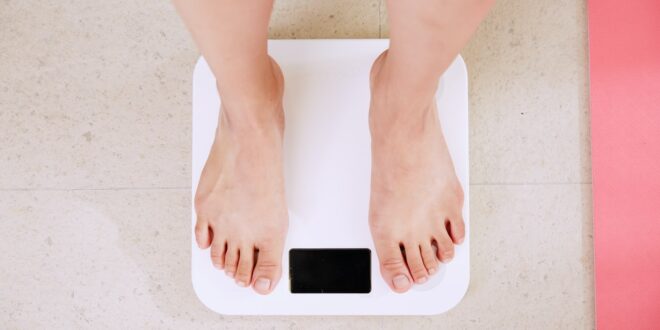The healthy, ideal weight is given to some people by genetics, and some have to work hard for it. In both cases, it is not easy to maintain a healthy weight. People who have been lucky enough to spend their youth at ideal weights can begin to lose it with age. As we age, our metabolism slows down, we are less physically active, we eat irregularly and unhealthily, and all this in combination, leads to unhealthy weight gain.
On the other hand, reaching your ideal weight through diet and exercise is just the beginning of the struggle. From reaching the ideal weight, only its maintenance is more difficult. Experts say that after reaching a healthy weight, the body needs another year of the same regime so that the body and mind get used to a healthy lifestyle and begin to consider it sufficient. This means that for a year after reaching a healthy weight, you should not believe the body when it sends signals that it is hungry. You still need to be careful about what and how much you eat, and how often you exercise.
It is for this reason that people, after reaching their healthy weight, very quickly regain their old weight, if not even worse. Once we become “ideal,” we think we can finally afford the food we want. The mind still wants to eat according to old habits, and the body accepts it. We think that we have done our part when it comes to exercising, so we give up here as well. Suddenly, not only do we consume more calories than during weight loss, but we also stop spending them. Trendlor.com can offer you some great pieces of advice on how to deal with excess weight and lose calories.
To maintain the ideal healthy body weight, we need to follow some rules long enough until they become a routine we don’t even think about anymore.
So, we present you with a couple of simple factors that will help you maintain your healthy weight, once you have already reached it.
1. Continue eating healthy

In a healthy diet, one rule is the most important: to maintain a healthy weight, you must make sure that you burn the calories you eat. However, one study found that it is not only important what you eat and how much, but also how. When you sit at a table, your brain wants food, not calories, so it will make you eat until you are full and satisfied. This also requires you to eat as slowly as possible, with awareness. High-fiber foods spread in the stomach, slowing down digestion and increasing the feeling of satiety. That is why eating fruits and nuts before the main meal, will result in eating less food.
Some experts also say that it is important to have an eating schedule. Your body digests during the day. As soon as the Sun sets, your organs are sleeping and whatever you eat then, will only burden your pancreas. This is why following the Sun cycle (eating from sunrise to sunset) and having a fasting period of 12 hours in a day will make sure all the food you consumed in a day will be digested.
2. Physical exercise

Active exercise is the safest way to maintain a healthy weight. Planned and focused physical activity, such as we get from sports, aerobics, running, swimming, etc. works best when done at least three times a week, i.e., every other day. Anything less than that won’t have much of an effect. However, it is best when the physical activity becomes our daily routine. Once we get used to half an hour of running early in the morning, or aerobics after work, we will no longer be able to imagine life without it.
If you are going for long walks or runs remember to wear your running shoes, or at least use supportive insoles for your sneakers. Companies like Protalus have online guides that can help you find your perfect insole.
On those days when you don’t get to exercise, do at least a morning workout. Morning yoga or stretching exercises will wake up your body and it will be fresher, more active, and more active throughout the day. Take fifteen minutes to yourself after getting up and do a couple of exercises, you will be surprised how much good effect it will have on your body and mind. One of the best training you can give to your body is intensive Crossfit training. On sites such as thekatynews.com you can find out all you need
3. Healthy sleep

Sleep is very important for a healthy living routine. Why? Because sleep deprivation causes stress and hormonal dysfunction. Research says people who have less than 7 hours of sleep a day, are more likely to gain weight. Also, a sleeping schedule is important. If you want to adopt a healthy routine, then make sure you go to bed by 9 p.m. and avoid using your mobile phone at that time. Grab a book, read a couple of pages, and slowly drift off to sleep by 9.30 p.m.
4. Drink a sufficient amount of water

Drinking sufficient amounts of water seems to be the solution to many problems. This is one of the easiest ways to improve your health, get rid of tension, and “flush” those toxins out of your body.
Consuming a sufficient amount of water is also associated with weight loss, and experts constantly remind us of the positive effects that the most ordinary water can have on the waist circumference.
Still, we’ve all sometimes wondered how much water should we drink to lose or maintain a healthy weight? Well, the answer is at least 2 l a day. If you can drink even more, then do so. However, be aware that drinking and eating at the same time will result in slow digestion, so make sure you drink water half an hour before and after you’ve had your meal. The water you drink should have a normal, room temperature, avoid drinking cold water, regardless of what others can tell you about how cooling and refreshing it is. Start your day with fresh water. As soon as you get out of your bed, brush your teeth and drink at least half a liter of water.
The whole process of maintaining a healthy weight ultimately comes down to just two things – healthy eating and exercise. Once we adopt the most important rules from both segments, the weight will no longer be a problem for us.
 Vermont Republic Second Vermont Republic
Vermont Republic Second Vermont Republic




